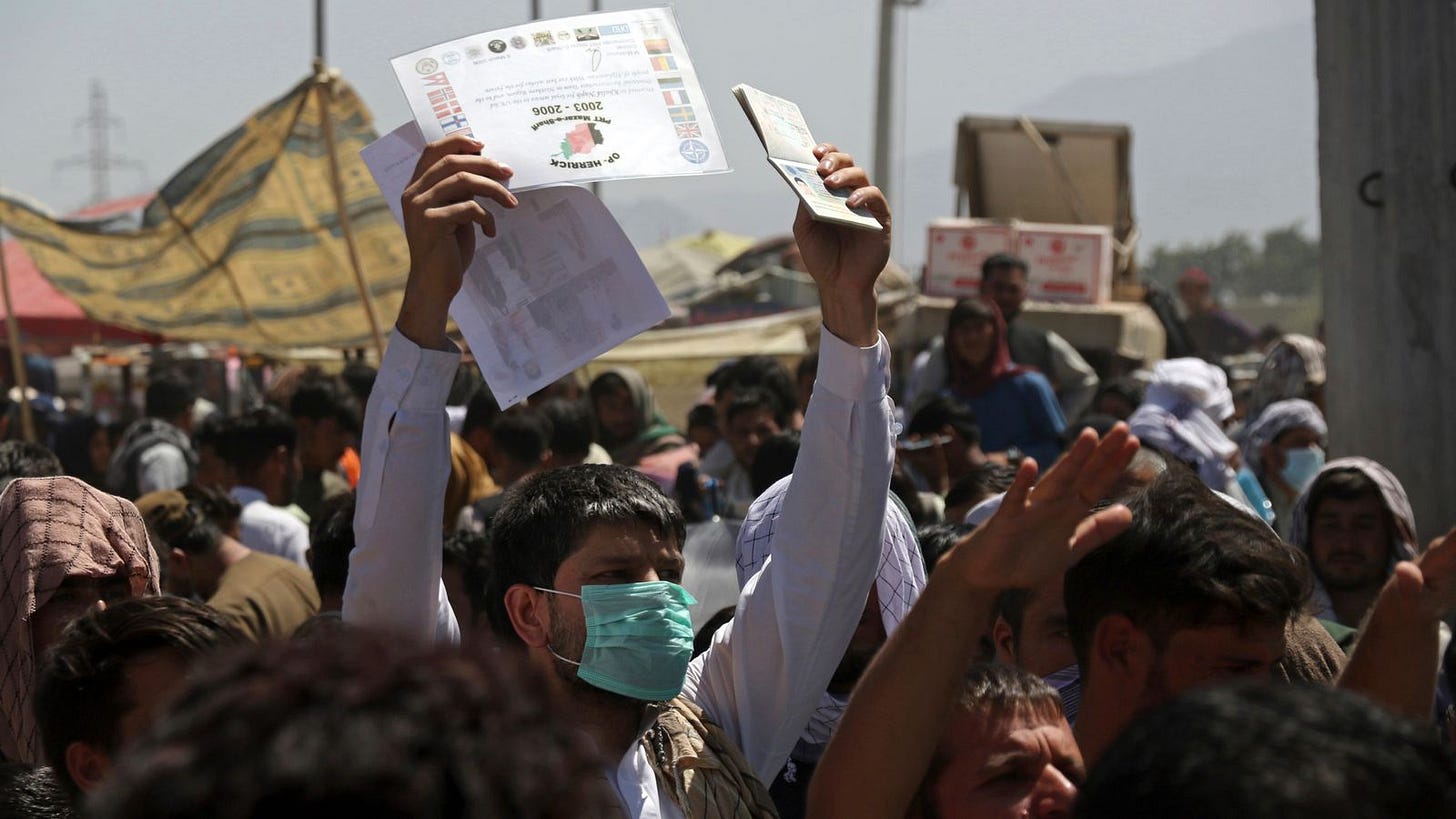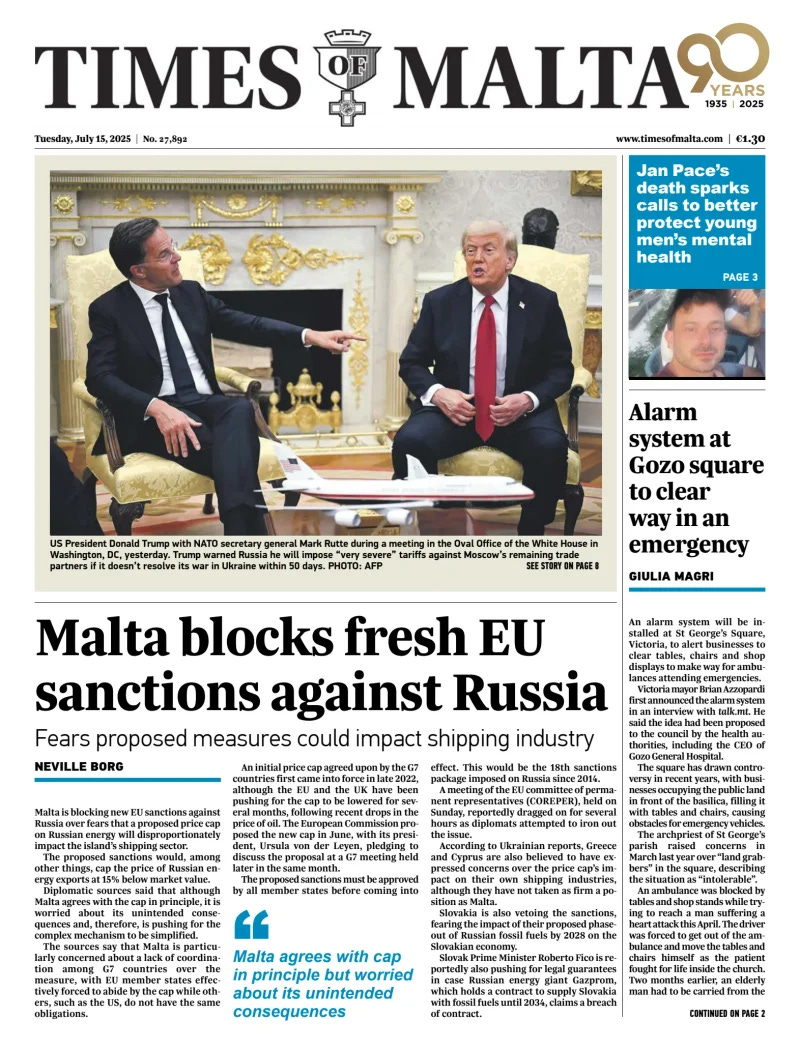Revealed: UK to Relocate 7,000 Afghans After Secret Data Breach Cover-Up
A catastrophic MoD error exposed nearly 20,000 Afghans to Taliban reprisals — yet the UK kept it secret for over three years under a super-injunction. The cost to taxpayers could exceed £6 billion.
Almost 7,000 Afghan nationals are being relocated to the UK following a massive data breach by the British military that successive governments tried to keep secret with a super-injunction. The blunder exposed the personal information of close to 20,000 individuals, endangering them and their families - with as many as 100,000 people impacted in total. The UK only informed everyone on Tuesday - three-and-a-half years after their data was compromised. The Ministry of Defence (MoD) said the relocation costs alone directly linked to the data breach will be around £850m. An internal government document from February this year said the cost could rise to £7bn, but an MoD spokesperson said that this was an outdated figure. However, the total cost to the taxpayer of existing schemes to assist Afghans who are deemed eligible for British support, as well as the additional cost from the breach, will come to at least £6bn. In addition, litigation against the UK arising from the mistake could add additional cost, as well as whatever the government has already spent on the super-injunction. Details about the blunder can finally be made public after a judge lifted the injunction that had been sought by the government. Barings Law, a law firm that is representing around 1,000 of the victims, accused the government of trying to hide the truth from the public following a lengthy legal battle. Defence Secretary John Healey offered a "sincere apology" for the data breach in a statement to MPs in the House of Commons on Tuesday afternoon. The previous Conservative government set up a secret scheme in 2023 - which can only now be revealed - to relocate Afghan nationals impacted by the data breach but who were not eligible for an existing programme to relocate and assist individuals who had worked for the British government in Afghanistan. Some 6,900 Afghans - comprising 1,500 people named on the list as well as their dependents - are being relocated to the UK as part of this programme - Sky News
Afghans have been urged to be “vigilant” after the data leak. In a blog post aimed at the tens of thousands of affected Afghans, the MoD told them to not respond to questions from “unknown contacts” about the incident. The Government’s blog post said: “If you believe that you or your family members have been affected, you should be vigilant (watchful).” The MoD advised those affected to “Exercise caution and not take phone calls or respond to messages or emails from unknown contacts….Limit who can see your social media profiles and not accept friend/follow requests from individuals you do not know and trust. You may also consider shutting the social media account down if you suspect any suspicious activity.” It also said: “Be wary of telling others that your personal data may be vulnerable. Informing others who are unconnected to the loss may draw attention to the fact that your personal data may be exploitable.” Afghans have also been warned that the MoD “cannot support you in a third country such as Pakistan” unless they are already in possession of an invitation to resettle in the UK.
If you find value in the reporting, analysis, and behind-the-scenes insights shared in World Briefing, I encourage you to consider upgrading to a paid subscription. Your support not only helps sustain independent journalism —but also gives you exclusive access to deep dives, early access to video reports, and subscriber-only content that goes beyond the headlines. In a world awash with noise, World Briefing delivers clarity, credibility, and context.
Israeli strikes overnight and into Tuesday killed more than 90 Palestinians across the Gaza Strip, including dozens of women and children, health officials said. One strike in the northern Shati refugee camp killed a 68-year-old Hamas member of the Palestinian legislature, as well as a man and a woman and their six children who were sheltering in the same building, according to officials from Shifa Hospital, where the casualties were taken. One of the deadliest strikes hit a house in Gaza City’s Tel al-Hawa district on Monday evening and killed 19 members of the family living inside, according to Shifa Hospital. The dead included eight women and six children. A strike on a tent housing displaced people in the same district killed a man and a woman and their two children. There was no immediate comment from the Israeli military on the strikes. Gaza’s Health Ministry said in a daily report Tuesday afternoon that the bodies of 93 people killed by Israeli strikes had been brought to hospitals in Gaza over the past 24 hours, along with 278 wounded. It did not specify the total number of women and children among the dead - AP
The EU will not “punish” Israel for its actions in Gaza and will “keep a close watch” on the country’s implementation of a recent agreement to improve the flow of aid in the strip, the bloc’s top diplomat Kaja Kallas said in a press conference following a meeting of the EU’s 27 ministers in Brussels. The ministers were in Brussels to discuss an EU-Israel agreement brokered last week to increase the number of trucks and distribution of food entering Gaza as well as the opening of several other crossing points. They also examined an exhaustive list of 10 options, including the suspension of visa-free travel and the blocking of imports from the Jewish settlements, in response to Israel’s breach of the EU-Israel Association Agreement. “Israel needs to take more concrete steps to improve the humanitarian situation on the ground,” Kallas told reporters, adding that Israel had already improved access and supplies of aid to Gaza. "The EU will keep a close watch on how Israel implements this common understanding and the pledges….The aim is not to punish Israel, the aim is to improve the situation in Gaza,” Kallas added - Euronews
Ukraine Under Fire as Trump Issues Vague Threats to Russia
Less than 24 hours after U.S. President Donald Trump threatened to impose 100% tariffs on countries trading with Russia if a ceasefire isn’t reached within 50 days, Ukraine was hit by a fresh wave of air raid sirens, missile strikes, and drone attacks.
In Odesa, two powerful explosions rocked the city just before dinner time. One blast sent a towering plume of smoke into the air above Pivdennyi Port (formerly Yuzhnyi), a major commercial hub on the Black Sea. By late evening, Ukrainian airspace was reportedly swarming with nearly 80 Russian drones, some headed toward Kyiv.
Nationwide, at least 12 people were injured and one killed in the latest barrage, according to state broadcaster Suspilne.
Speaking to reporters outside the White House, Trump struck a neutral tone, saying: “I am on nobody’s side. I want to stop the killing.” But his lack of specifics—and the long 50-day timeline—raised eyebrows in Ukraine and beyond.
Russia’s Foreign Minister Sergei Lavrov, echoing the mocking tone of recent Russian state media coverage, brushed off Trump’s threat. “Fifty days—we’ve been through that. Twenty-four hours—we’ve been through that too. A hundred days—we’ve seen it all,” he said, following a diplomatic tour that included visits to China and North Korea.
For more context, watch my early morning, live BBC World Television interview below.
No fewer than four Ukrainian-born individuals appear on Forbes magazine’s 2025 list of America’s Richest Immigrants, joining 125 foreign-born U.S. citizens from 41 countries who collectively hold a record $1.3 trillion in wealth. Together, they represent 18% of America’s total billionaire fortune—estimated at $7.1 trillion.
Topping the list is Elon Musk, with $393.1 billion, followed by Russian-born Google co-founder Sergey Brin at $139.7 billion. Brin emigrated from the Soviet Union to the U.S. at age six, Forbes notes. The presence of wealthy Ukrainians on the list highlights the global success of the diaspora, particularly in tech and business. But in some European countries, the conspicuous displays of wealth by certain Ukrainians—supercars, designer wardrobes, private schools, and lavish spending—have become a point of discomfort. Critics say such extravagance is jarring at a time when Ukraine, a country at war and dependent on Western aid, continues to suffer immense human and economic losses. The contrast between battlefield hardship and billionaire lifestyles is sparking uncomfortable conversations about image, responsibility, and solidarity during wartime.
Georgia is once again high up on the agenda of EU foreign ministers due to the deteriorating political situation in the South Caucasus republic after the recent arrests of several opposition politicians. In early 2025, Brussels imposed visa requirements on Georgian diplomatic passport holders. It has also refrained from holding high-level political meetings and diverted EU funding from Georgia’s government to civil society. The most pressing issue this time is whether the bloc -- with the unanimous approval of all 27 member states -- manages to impose any sanctions. So, what other options are being discussed? The most obvious one is to suspend visa liberalization for Georgian citizens -- a move that only requires a qualified majority of 55 percent of member states representing 65 percent of the total EU population. It has also been pointed out that such a step would likely have more of a negative impact on ordinary Georgian citizens rather than the country’s leadership. Another alternative proposal put forward by the European Commission is to impose national entry bans on certain individuals - RFE/RL
Thailand has postponed the rollout of its long-discussed – and frequently delayed – entry fee for tourists, citing sluggish visitor numbers and economic uncertainty. Initially expected to take effect in 2025, the 300-baht (€7.50) “kha yeap pan din” (“stepping onto Thai soil”) fee will now be pushed back to the middle of 2026, according to the Ministry of Tourism and Sports. Approved in principle by Thailand’s cabinet in February 2023, the fee would apply to all foreign visitors arriving by air, with a reduced rate of 150 baht (€3.75) for those arriving by land or sea. The funds would go toward projects that improve tourism infrastructure and provide insurance coverage for travellers. But Assistant Tourism Minister Chakrapol Tangsutthitham confirmed this week that the government is holding off until demand rebounds.






